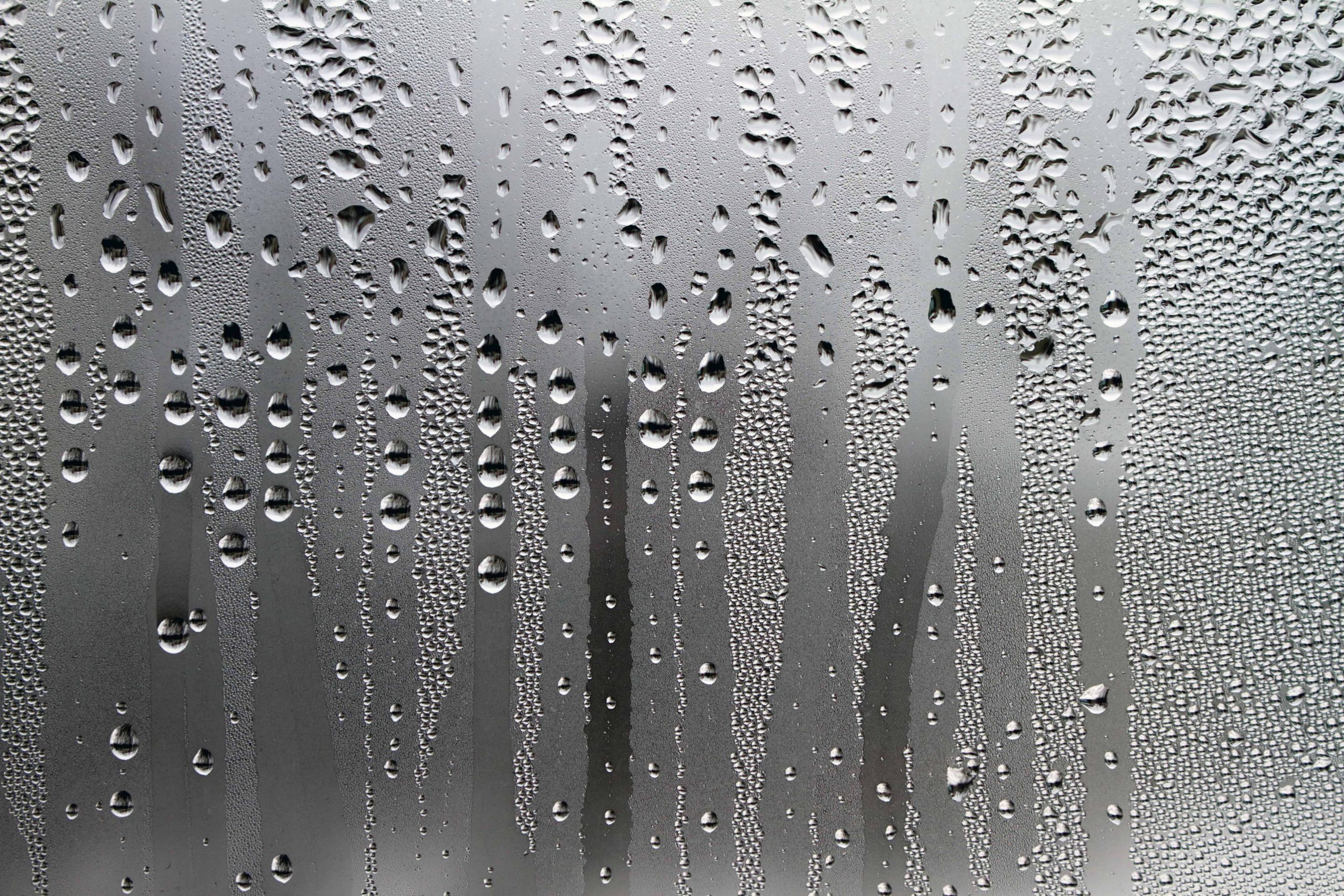It’s the end of summer and it’s hot outside. You want to stay cool in your home which means your air conditioner is working extra hard in these hot, humid months. You might know that occasional water droplets, condensation, is not a cause for concern but what if you’ve noticed droplets of water on your air conditioner? Or have you seen water on your ceiling or basement floor? While occasional droplets of water are normal when humidity levels are high, finding a leak is worrisome, especially if you don’t know what is causing the leak.
Is It Your Air Conditioner?
If you suspect a leak, consider where it could be coming from and what appliances have been running. If you notice a leak on the ceiling while doing laundry and your washing machine is on the second floor, it might be a clogged drain from the washing machine. Often the drain line for a washing machine connects to a condensate drain line for the air conditioner. But if you suspect it’s your air conditioner, then first determine the location of your indoor air handler.
Where Is Your Air Handler?
Your air handler will either be located in your crawl space, basement, or your attic. If it’s in your basement and you have water pooling around the indoor unit, first turn off power for that area. If you don’t know how to turn off the breakers or are unsure of what to do, leave the basement and contact a professional at Boer Brothers Heating & Air Conditioning.
Once you’ve turned off the power, you’ll want to determine the source of the leak. Most of the time, a leak from your air conditioner is from a clogged condensate drain line. (We’ll talk further about this below). If your indoor unit (furnace or air handler) is in your attic, then the drain line carries the water by gravity – water will drain to the lowest point. If your air conditioner is in the basement then you’ll have a condensate pump to remove the water from your home.
Basement Air Handler
If your air handler is in the basement then you’ll want to make sure your drain pan is free from debris and isn’t causing the water to back up. If the drain pan is clean, it’s possible the condensate pump is malfunctioning. You’ll need to contact your certified HVAC technician to diagnose and repair the problem. Repairing or replacing parts of your air conditioner is NOT a DIY job. Not only could you cause further damage to your unit, but you could potentially void your manufacturer’s warranty.
Clogged Condensate Drain Line in Chapel Hill, NC
As mentioned, a clogged condensate drain line is the most common reason for an air conditioner to leak water into your home. But what is a condensate drain line and can you fix a clogged drain line yourself?
An air conditioner cools your home by removing the humidity out of the air and sending the air back into your home. But the water has to go somewhere. This is the job for the condensate drain line. The drain line removes the condensation produced by the evaporator coil and carries it to the outside of your house. But where there’s condensation, there’s always the possibility of mold and bacterial growth. Mold, bacteria, algae, as well as sediment and insects even, can build up inside your drain line. Once the buildup becomes too large, it forms a clog and the water gets backed up and fills your drain pan.
Thankfully, if your leak is due to a clogged condensate drain line, it’s actually an easy DIY fix.
Before you take steps to unclog the drain, first make sure that the pipe attached to the air handler was connected properly. If it is not secured properly then it could also cause a leak. If the drainpipe is connected then you can try to find the source of the clog.
If the cause of the leak was a clogged drain line, you can pour vinegar or bleach down the drain every 30 to 60 days as a preventative measure. This will clean the drain and kill bacteria, mold, and algae growth.
Frozen or Dirty Evaporator Coils in Durham and Carrboro
If you don’t have a clogged drain line, you might have a problem with the evaporator coil inside the air handler. If you’re low on refrigerant or have clogged air filters, then the coils could freeze and cause a leak when the ice melts. Dirty evaporator coils may prevent water from flowing properly into your the drain line.
Changing air filters is a great preventative measure for a whole host of HVAC problems and should be done on a regular basis. If you have a frozen evaporator coil from low refrigerant, you should contact us immediately to diagnose the problem. Boer Brothers can help you determine the problem and provide you the best solution. Keeping to a regular maintenance schedule with Boer Brothers will ensure your unit is clean, including the evaporator coils, and functioning efficiently. A little preventative care goes a long way in protecting your air conditioner.

